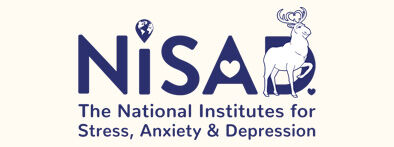Have you ever wondered why certain questions or topics make you feel irritable?
Why you tend to bring work home with you?
Thinking about the next day instead of relaxing in the now?
It might be the cause of underlying excess-stress. Suddenly everything feels louder, faster and more intense than before.
So how do we deal with this feeling?
There are many ways, professional and non-professional, to deal with excess-stress.
First of all, it can be difficult to make whatever triggered the excess-stress to settle down.
You might find yourself in a situation you simply can’t walk away from; at least not without consequences. This might be a deadline or another kind of date where you’re meant to do something important, or even just a busy day at work.
However, it is OK to ask the people in your environment to slow down. For many years I worked in different kinds of customer support in stressful environments and my most common expressions were “slow down, please” or “one thing at a time, please”.
Ask for a break to go outside and get some fresh air if you can. If you can’t, make sure to do it as soon as you are able to do so. Just be alone for a second and limit the number of impressions to get your head together.
Distance yourself from whatever it is making you feel overwhelmed, even if it means going into an empty room and turning off the lights and putting in earplugs.
You need to put your own wellbeing first and there are no rules on doing what you need to do to make the raising thoughts slow down.
Secondly, ask yourself if this is a kind of necessary stress or excess-stress.
Is there a deadline to follow or is it the task itself or even the people you work with that is causing you to feel excess-stress?
Knowing the trigger also makes you aware of when it’s time to act. That action can for example be to go for a break or to simply take a moment to address what is happening.
When I was in uni the worst thing I knew was group assignments, especially in a big group. My first group consisted of eight very different people with different aims and different needs in regards to structure. Meeting after meeting we sat for hours and did very little work. It just required too much energy to collect the group as a whole. Until one day a girl who usually would sit quietly suddenly opened her mouth and addressed the elephant in the room by saying “there’s a really bad atmosphere here”.
We all knew it of course, but at the moment we all managed to get out of our personal bubbles to discuss why and how our group assignment was causing us excess-stress. It turned out we all had reasons to feel overwhelmed.
One person had been given the task to take notes during the meetings and she didn’t feel comfortable doing so because it kept her from participating properly. Another person was worried about having misunderstood the task. I found myself interrupted a lot during the meetings and thus felt confused and overwhelmed.
Sometimes stopping to address the problem is for the greater good. We never sat for hours and hours as a group again. We took a moment to apologize to one another and re-focused on splitting the assignment into different parts so that we could all focus on a specific part.
This might seem like a failure to work as a group, but on the contrary, we learned to let go of control and to trust one another to do their part. Because a group of eight people is bound to divide anyway.
Thirdly, blow off some steam. There are many ways to do this, such as exercising, journaling or just ranting to a friend or family member.
Sometimes when we’re feeling excess-stress the stress itself takes over and becomes this obstacle covering our view. We forget what’s important and that there are other things in life.
Fourthly, prioritise. Write a list of things that needs to be done in order of importance.
Your list doesn’t necessarily need to only be about work-related tasks or even difficult tasks. The list is there to simplify what needs to be done and gives you a feeling of satisfaction to cross things off the list one by one.
On days when excess-stress feels paralyzing and you don’t know where to begin, you will always have the list.
Add things on the list that you need to do for yourself. Things that feel simple and doable such as eating breakfast and brushing your hair.
It is important to take care of yourself!
Personally, I like to use the free app Habitica, which gamifies tasks. You get points when you complete tasks and you can join forums about health and wellbeing. It’s very simple to use and it motivates me to get things done one by one.

Findus Krantz
BA Social Psychology
Social Psychologist and Analyst
As a social psychologist, I have always been interested in how and why people react in a certain way in social situations.
To me, there is always a story behind why people share meaning looks or cross their arms and I aim to uncross those arms with kindness and empathy.


